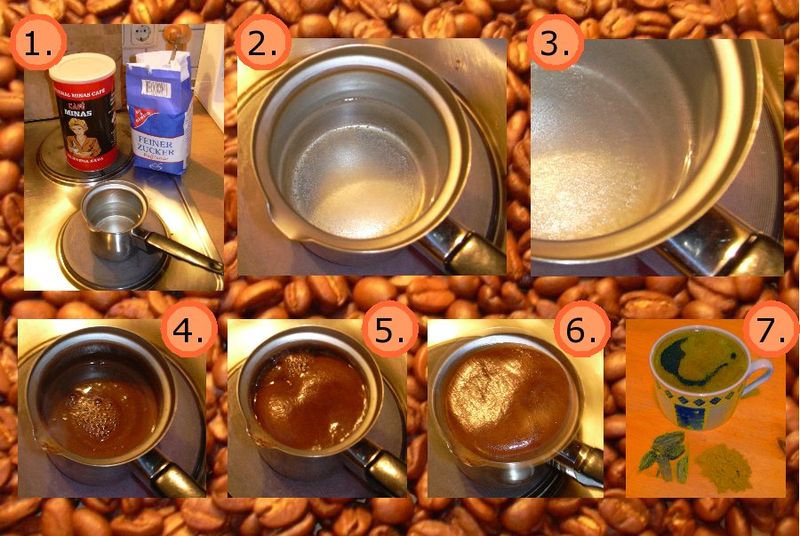Known also as Turkish coffee, is the coffee prepared by boiling finely powdered roast coffee beans in a pot, possibly with sugar, and serving it into a cup, where the dregs settle. The name describes the method of preparation, not the raw material; there is no special Turkish variety of the coffee bean. It is common throughout the Middle East, North Africa, Caucasus, and the Balkans, and in their expatriate communities and restaurants in the rest of the world.
The name “Greek Coffee”
In Greece, when passing an order it was simply referred to a ‘tourkiko’ (τούρκικο). However, the reference was changed by the coffee industry after the Turkish invasion of Cyprus in July 1974, when Greco-Turkish relations at all levels became strained. The recipe remains the same but it is called an ‘elliniko’ (a Greek).
Preparation of Turkish coffee
Turkish coffee is a method of preparation, not a kind of coffee. Therefore, there is no special type of bean. Beans for Turkish coffee are ground or pounded to the finest possible powder; finer than for any other way of preparation. The grinding is done either by pounding in amortar (the original method) or using a burr mill. Most domestic coffee mills are unable to grind finely enough; traditional Turkish hand grinders are an exception.

Drinking
Turkish coffee is taken at extremely hot temperatures and is usually served with a glass of cold water to freshen the mouth to better taste the coffee. It is traditionally served with Turkish delight. In the Mediterranean and southeastern Turkey, pistachio grains (kakuli/menengiç) may be added into the coffee. All of the coffee in the pot is poured into cups, but not all of it is drunk. The thick layer of sludgy grounds at the bottom of the cup is left behind.
